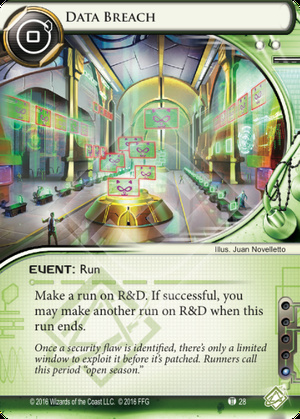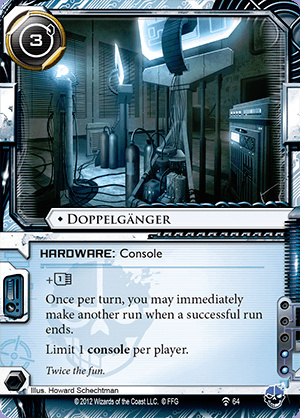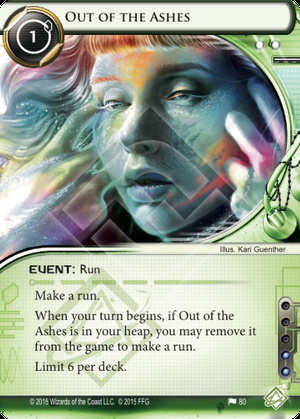Though, on further consideration, my previous interpretation doesn’t jive with being able to use multiple OotA in a single turn. If you can use multiple OotA in one turn, I can’t fathom why you wouldn’t be able to use DB + Doppel, and my explanation for why multiple Encores doesn’t work loses some credibility.
The UFAQ states that you can make multiple OotA runs:
Question: Can the Runner use more than one copy of Out of the Ashes when their turn begins?
Answer: Yes, each Out of the Ashes triggers separately from each other. Each copy is finished resolving only after the run has ended, at which time the Runner can resolve another copy (or any other “when your turn begins” abilities).
Don’t think I understand. Previously in this thread, we said that “make a run” only initiates a run. If “make a run” sees a run through to completion, then HSJ and DL do not work (as I said previously).
(Link to previous discussion: Official Rules Question Thread - #3246 by ironcache)
To make multiple OotA runs cohere with our discussion about HSJ/DL, you would need to interpret it in a manner that card effects that “make a run” inject a run into the game state (deferring other “when begins” effects), but within the card effect itself, “make a run” just means to initiate a run (from which you can then proceed to the next step in the card effect). This likely means my comment above about Jak Sinclair is incorrect.
But, even if you do take this interpretation (which seems odd to me), I don’t see how you end up in a position where multiple OotA does work, but DB into Doppel into DB doesn’t work.
Maybe something to do with the fact that OotA depends on “when your turn begins” (which we haven’t necessarily progressed beyond) vs. DB/Doppel depending on when this run ends (which we have progressed beyond)? Could be a similar situation for Encore in that regard (IE: activate 1 Encore, take another turn, activate second encore, already progressed beyond last turn ending, so fails)?
But this would mean that Doppel/Stim would let you get away with no repercussions on Stim (as previously mentioned). This cannot be correct.
Do we have confirmation anywhere that Damon actually made that Doppel/DB ruling? I’ve only seen reference to it here, and it seems to contradict known interactions.
Anyway, I’m confused; I’ll have to bow out until someone with a better understanding than me can explain it.


